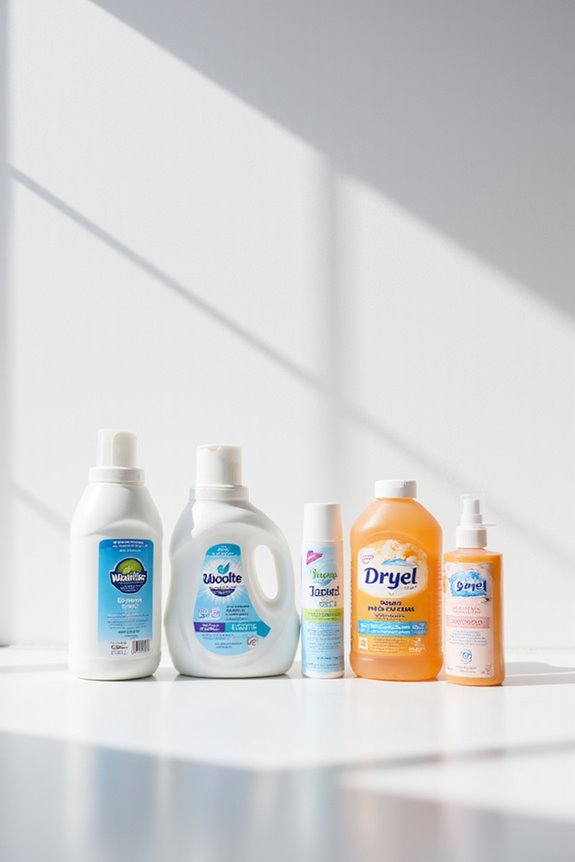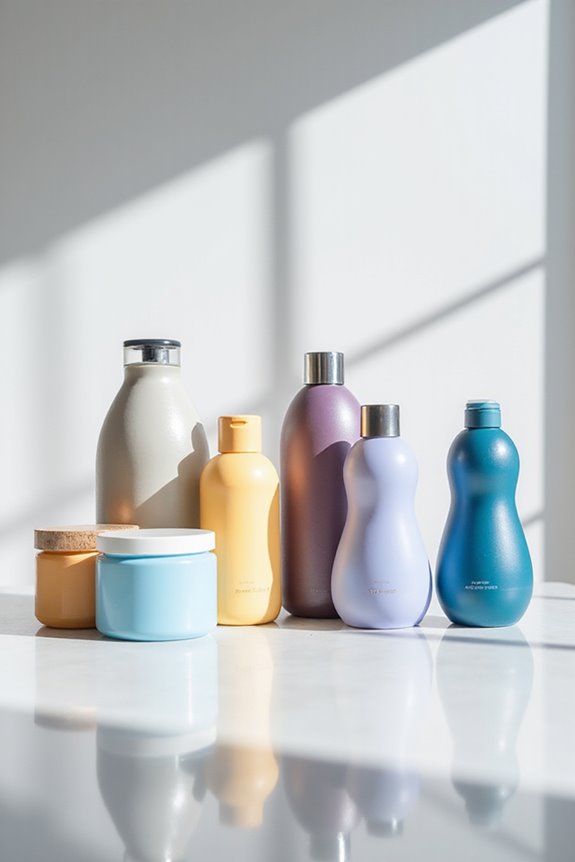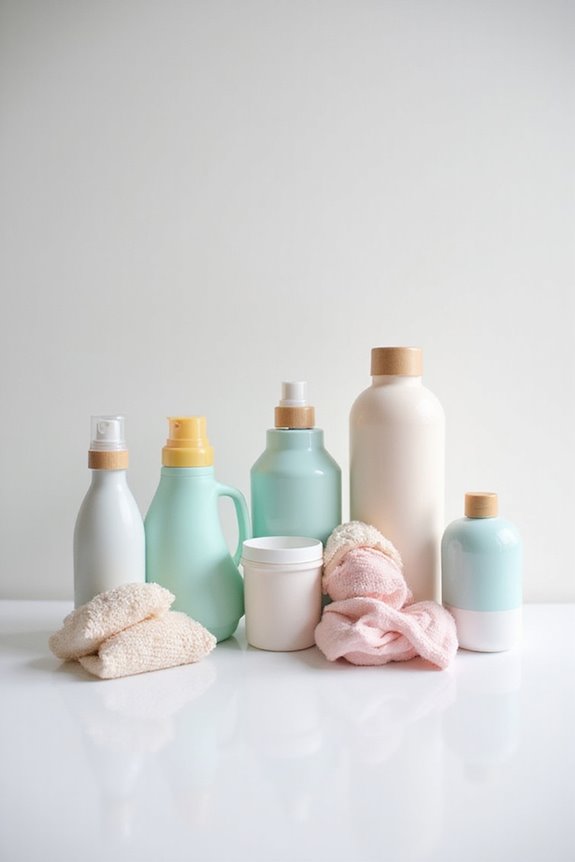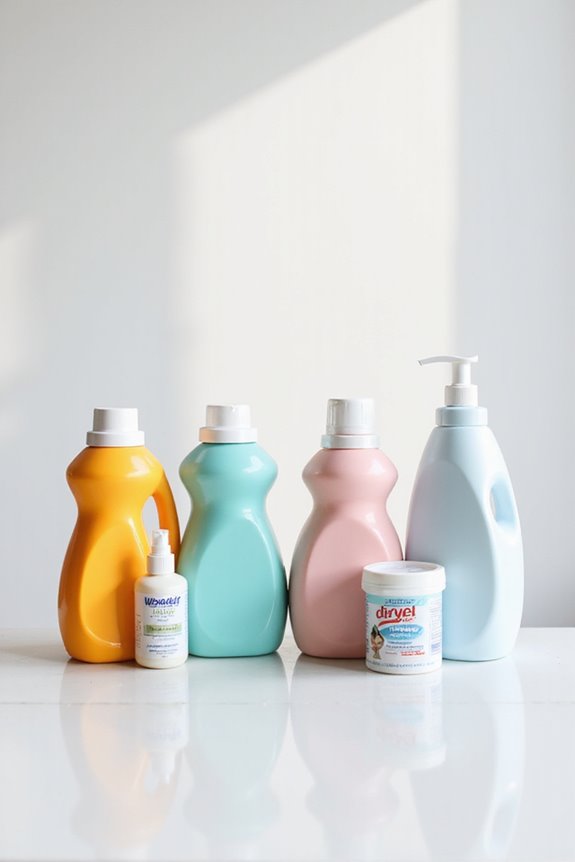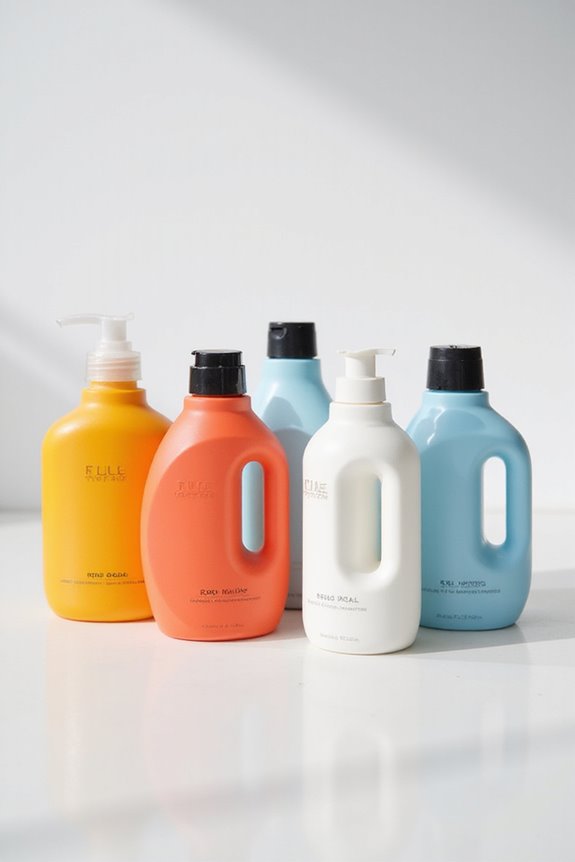Laundry detergent usually lasts about 6 to 12 months once we’ve opened it. If it’s still sealed, it can stay effective for 12 to 18 months. Over time, we might notice clumpy textures or funny smells, signaling it’s expired—kind of like how we feel after a long day! Storing it in a cool, dry spot helps maintain its freshness. Curious about how to spot when it’s gone bad or how different kinds stack up? Let’s explore!
Key Takeaways
- Liquid detergents last 6 months to a year once opened, while unopened ones can last 12 to 18 months.
- Powdered detergents can last indefinitely if kept dry and sealed, making them more durable.
- High heat, extreme cold, and humidity can negatively affect the lifespan of both liquid and powdered detergents.
- Signs of expired detergent include clumpy textures, rancid odors, and reduced cleaning effectiveness.
- Storing detergent in a cool, dry place away from sunlight will help prolong its life.
Understanding Laundry Detergent Shelf Life
When we think about laundry detergent, we often just grab the bottle without considering how long it’ll actually last. Did you know that liquid detergents typically last about 6 months to a year once opened? Unopened, they can be effective for 12 to 18 months, depending on their storage conditions. After expiration dates, the detergent composition can change, leading to clumpy or cakey messes that just don’t clean well. On the other hand, powdered detergent can last indefinitely if we keep it dry and sealed. Additionally, it’s important to note that hypoallergenic formulas are essential for sensitive skin, reducing irritation risks. So, it’s worth checking those bottles and boxes before doing laundry. We want our clothes clean, not coated in old detergent! Let’s keep our laundry game strong by being mindful of expiration dates.
Factors Influencing Detergent Longevity
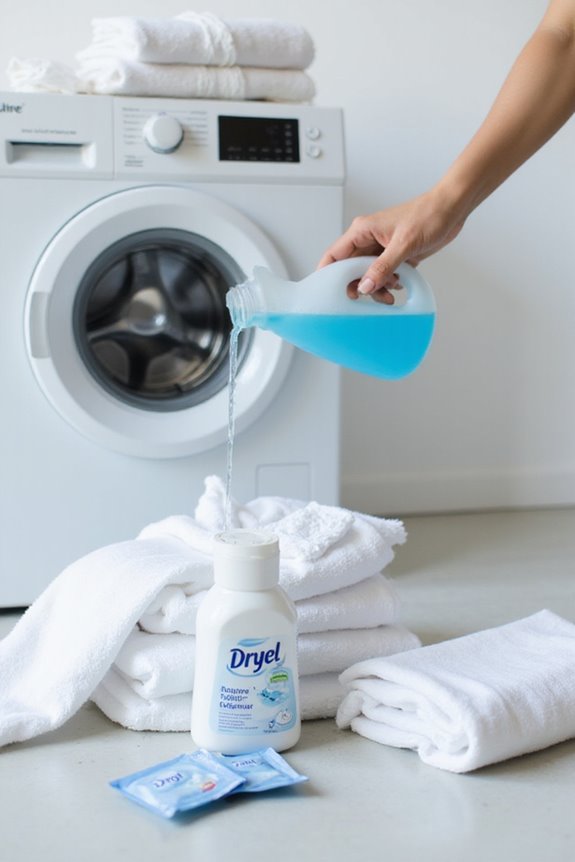
While we might think all laundry detergents are created equal, several factors can really influence how long they last. First, the detergent formulation plays a big role. Liquid detergents typically last 6-12 months, while powder can go up to 2 years if stored properly. Then, we have temperature effects—high heat can break down detergents faster, while extreme cold can ruin liquid ones by causing separation. Humidity is another culprit; it can lead to clumping in powders or separation in liquids. To prolong our detergent’s life, let’s store it in a cool, dry place, away from sunlight. And hey, keeping containers tightly sealed can work wonders—no one wants a surprise science experiment in their laundry room! Additionally, using eco-friendly options helps minimize the environmental impact, ensuring that your detergent choice aligns with sustainable practices.
Identifying Signs of Expired Detergent
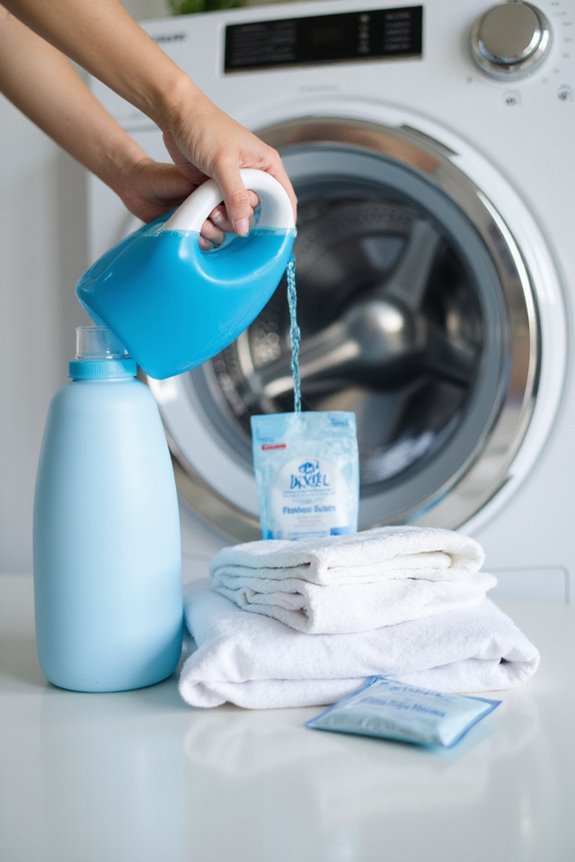
After understanding the factors that influence how long our laundry detergent can last, it’s equally important to recognize the signs that indicate our detergent might have seen better days. We can start by checking for formula separation or clumpy textures. If it looks thick or becomes hard, it’s time to say goodbye. A noticeable rancid odor or color change? That’s a tell-tale sign of detergent expiration. For powder, hard clumps and reduced lather can mean it’s lost its effectiveness. And with pods, if they’re hard or cracked, we won’t get the cleaning power we need. By identifying freshness, we can guarantee our laundry remains bright and clean, avoiding the dreaded musty smell. Let’s keep our clothes happy!
Comparing Different Types of Laundry Detergents
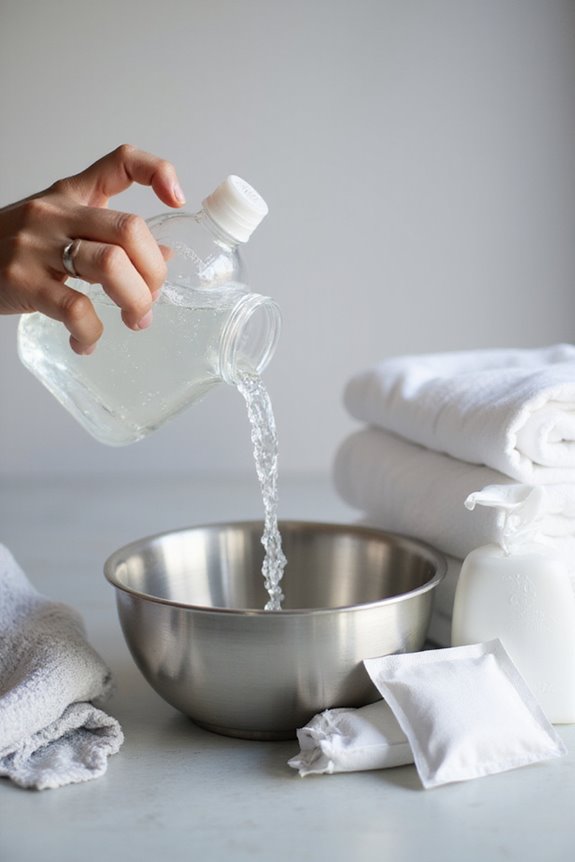
Laundry detergents come in various types, each with its own strengths and weaknesses, so it’s essential to choose the right one for our needs. Liquid detergents offer some great benefits, like being highly effective on greasy stains and dissolving well in any wash temperature. We love how concentrated formulas mean using less per load, making it last longer. On the flip side, pods provide convenience, with pre-measured doses that cut down on mess. But they come with some drawbacks, like higher costs per load and being less flexible for pre-treating stains. Plus, let’s not forget the potential hazards if kids are around! Ultimately, knowing what each type offers can help us make smarter laundry choices. Additionally, opting for eco-friendly options can further enhance your laundry experience while being mindful of the environment.
Best Practices for Storage and Usage
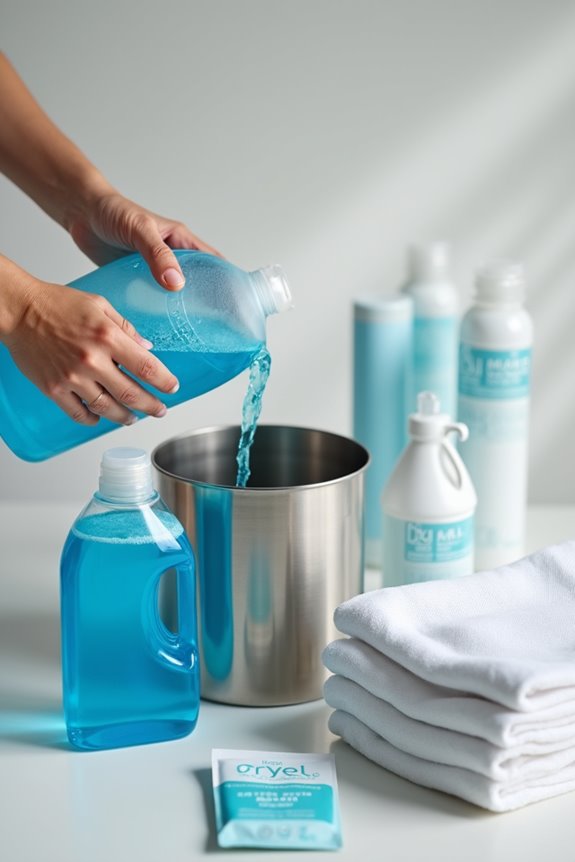
Storing and using laundry detergent properly can really make a difference in how well it works. First, let’s find a cool, dry spot for our detergent. Keeping it away from sunlight is key to maintaining its potency. We should also use airtight containers for pods and powders to avoid moisture damage.
For detergent organization, wall-mounted shelves are a lifesaver—they keep things tidy and easily accessible. Clear jars can help us monitor how much we have left.
Let’s not forget to regularly check for leaks or cracks in containers. This way, we avoid spills that can lead to messy accidents. By following these simple storage solutions, we can guarantee our detergents stay effective and our laundry routine runs smoothly!
Frequently Asked Questions
Can I Still Use Expired Laundry Detergent?
We shouldn’t rely on expired detergent safety. While we can use it, we’ll notice a detergent effectiveness comparison that shows reduced cleaning power, potential residues, and even skin irritation. Fresh detergent’s always the better choice!
How Should I Dispose of Expired Detergent?
When cleaning out our cabinets, we can think of expired detergent like an old friend—time to part ways. For detergent disposal, let’s explore eco-friendly options, ensuring we protect our environment while decluttering responsibly.
Does Laundry Detergent Lose Fragrance Over Time?
Yes, laundry detergent does lose fragrance over time. We’ve noticed that fragrance stability decreases, leading to diminished scent retention. Proper storage can help maintain freshness, but eventually, even the best detergents will fade.
Can I Mix Different Types of Detergents?
We shouldn’t mix different types of detergents due to compatibility concerns. Mixing precautions are essential; incompatible ingredients can hinder cleaning effectiveness and even damage fabrics. Let’s stick to one detergent type for the best results.
What Happens if I Use Too Much Detergent?
If we use too much detergent, we risk detergent buildup, which hampers washing efficiency. Our clothes may feel dirty or sticky, and our machines could face breakdowns from excessive suds and residue. Let’s measure wisely!

